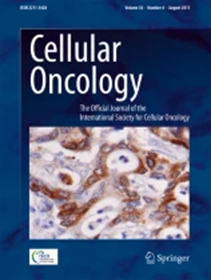MAP3K1 expression is associated with progression and poor prognosis of hormone receptor-positive, HER2-negative early-stage breast cancer
IF 6.6
2区 医学
Q1 Medicine
引用次数: 2
Abstract
Purpose In this study, we assessed whether the overexpression of MAP3K1 promotes the proliferation, migration, and invasion of breast cancer cells, which affect the prognosis of hormone receptor (HR)–positive, human epidermal growth factor receptor 2 (HER2)–negative early stage breast cancer. Methods Two HR-positive, HER2-negative breast cancer cell lines (MCF7 and T-47D) overexpressing MAP3K1 were transfected with two MAP3K1 short hairpin RNA plasmids (shMAP3K1 [#3] and shMAP3K1 [#5]). The proliferation, migration, and invasion of these cells were then examined. We assessed whether shMAP3K1 affects the cell cycle, levels of downstream signaling molecules (ERK, JNK, p38 MAPK, and NF-κB), and sensitivity to chemotherapeutic and hormonal agents. To assess the anti-tumor effect of MAP3K1 knockdown in the breast cancer orthotopic model, MCF7 and T-47D cells treated with or without shMAP3K1 (#3) and shMAP3K1 (#5) were inoculated into the mammary fat pads of mice. In total, 182 patients with HR-positive, HER2-negative T1 and T2 breast cancer and 0–3 nodal metastases were included. Additionally, 73 patients with T1 and T2 breast cancer and negative nodes who received adjuvant endocrine therapy alone were selected as an independent validation cohort. Results In both cell lines, shMAP3K1 (#3) and shMAP3K1 (#5) significantly reduced cell growth, migration, and invasion by downregulating MMP-9 and by blocking the G2/M phase of the cell cycle and its regulatory molecule cyclin B1. Moreover, both shMAP3K1 (#3) and shMAP3K1 (#5) downregulated ERK-, JNK-, p38 MAPK-, and NF-κB-dependent gene transcription and enhanced the sensitivity of both cell lines to doxorubicin, docetaxel, and tamoxifen. We observed that both shMAP3K1 (#3) and shMAP3K1 (#5) inhibited tumor growth compared with that in the scrambled group of MCF7 and T-47D cell orthotopic tumors. Patients with MAP3K1 overexpression exhibited significantly poorer 10-year disease-free survival (DFS) (70.4% vs. 88.6%, p = 0.003) and overall survival (OS) (81.9% vs. 96.3%, p = 0.001) than those without MAP3K1 overexpression. Furthermore, phospho-ERK ( p < 0.001) and phospho-JNK ( p < 0.001) expressions were significantly associated with MAP3K1 expression, and both phospho-ERK and phospho-JNK expressions were significantly correlated with poor 10-year DFS and OS. These biological findings, including a significant association between DFS and OS, and the expressions of MAP3K1, phospho-ERK, and phospho-JNK were further validated in an independent cohort. Multivariate analysis identified MAP3K1 expression as an independent poor prognostic factor for DFS and OS. Conclusion Our results indicate that the overexpression of MAP3K1 plays a major role in the poor prognosis of HR-positive, HER2-negative early stage breast cancer.MAP3K1表达与激素受体阳性、her2阴性早期乳腺癌的进展和不良预后相关
在本研究中,我们评估MAP3K1过表达是否促进乳腺癌细胞的增殖、迁移和侵袭,从而影响激素受体(HR)阳性、人表皮生长因子受体2 (HER2)阴性的早期乳腺癌的预后。方法用两种MAP3K1短发夹RNA质粒(shMAP3K1[#3]和shMAP3K1[#5])转染过表达MAP3K1的hr阳性和her2阴性乳腺癌细胞系MCF7和T-47D。然后检测这些细胞的增殖、迁移和侵袭。我们评估了shMAP3K1是否影响细胞周期、下游信号分子(ERK、JNK、p38 MAPK和NF-κB)的水平,以及对化疗和激素药物的敏感性。为了评估MAP3K1敲低在乳腺癌原位模型中的抗肿瘤作用,我们将经或不经shMAP3K1(#3)和shMAP3K1(#5)处理的MCF7和T-47D细胞接种于小鼠乳腺脂肪层。共纳入182例hr阳性、her2阴性的T1、T2乳腺癌及0-3淋巴结转移患者。另外,选择73例单独接受辅助内分泌治疗的T1和T2乳腺癌阴性淋巴结患者作为独立验证队列。结果在两种细胞系中,shMAP3K1(#3)和shMAP3K1(#5)通过下调MMP-9和阻断细胞周期的G2/M期及其调控分子细胞周期蛋白B1,显著降低细胞生长、迁移和侵袭。此外,shMAP3K1(#3)和shMAP3K1(#5)下调ERK-、JNK-、p38 MAPK-和NF-κ b依赖性基因转录,并增强两种细胞系对阿霉素、多西他赛和他莫昔芬的敏感性。我们观察到,与MCF7和T-47D细胞原位肿瘤的打乱组相比,shMAP3K1(#3)和shMAP3K1(#5)均抑制肿瘤生长。MAP3K1过表达患者的10年无病生存率(DFS) (70.4% vs. 88.6%, p = 0.003)和总生存率(OS) (81.9% vs. 96.3%, p = 0.001)明显低于无MAP3K1过表达患者。此外,phospho-ERK (p < 0.001)和phospho-JNK (p < 0.001)表达与MAP3K1表达显著相关,phospho-ERK和phospho-JNK表达与10年DFS和OS差显著相关。这些生物学发现,包括DFS和OS之间的显著关联,以及MAP3K1、phospho-ERK和phospho-JNK的表达,在一个独立的队列中得到了进一步的验证。多变量分析发现,MAP3K1表达是DFS和OS的独立不良预后因素。结论MAP3K1过表达在hr阳性、her2阴性的早期乳腺癌预后不良中起重要作用。
本文章由计算机程序翻译,如有差异,请以英文原文为准。
求助全文
约1分钟内获得全文
求助全文
来源期刊

Cellular Oncology
Biochemistry, Genetics and Molecular Biology-Cancer Research
CiteScore
10.40
自引率
1.50%
发文量
0
审稿时长
16 weeks
期刊介绍:
The Official Journal of the International Society for Cellular Oncology
Focuses on translational research
Addresses the conversion of cell biology to clinical applications
Cellular Oncology publishes scientific contributions from various biomedical and clinical disciplines involved in basic and translational cancer research on the cell and tissue level, technical and bioinformatics developments in this area, and clinical applications. This includes a variety of fields like genome technology, micro-arrays and other high-throughput techniques, genomic instability, SNP, DNA methylation, signaling pathways, DNA organization, (sub)microscopic imaging, proteomics, bioinformatics, functional effects of genomics, drug design and development, molecular diagnostics and targeted cancer therapies, genotype-phenotype interactions.
A major goal is to translate the latest developments in these fields from the research laboratory into routine patient management. To this end Cellular Oncology forms a platform of scientific information exchange between molecular biologists and geneticists, technical developers, pathologists, (medical) oncologists and other clinicians involved in the management of cancer patients.
In vitro studies are preferentially supported by validations in tumor tissue with clinicopathological associations.
 求助内容:
求助内容: 应助结果提醒方式:
应助结果提醒方式:


